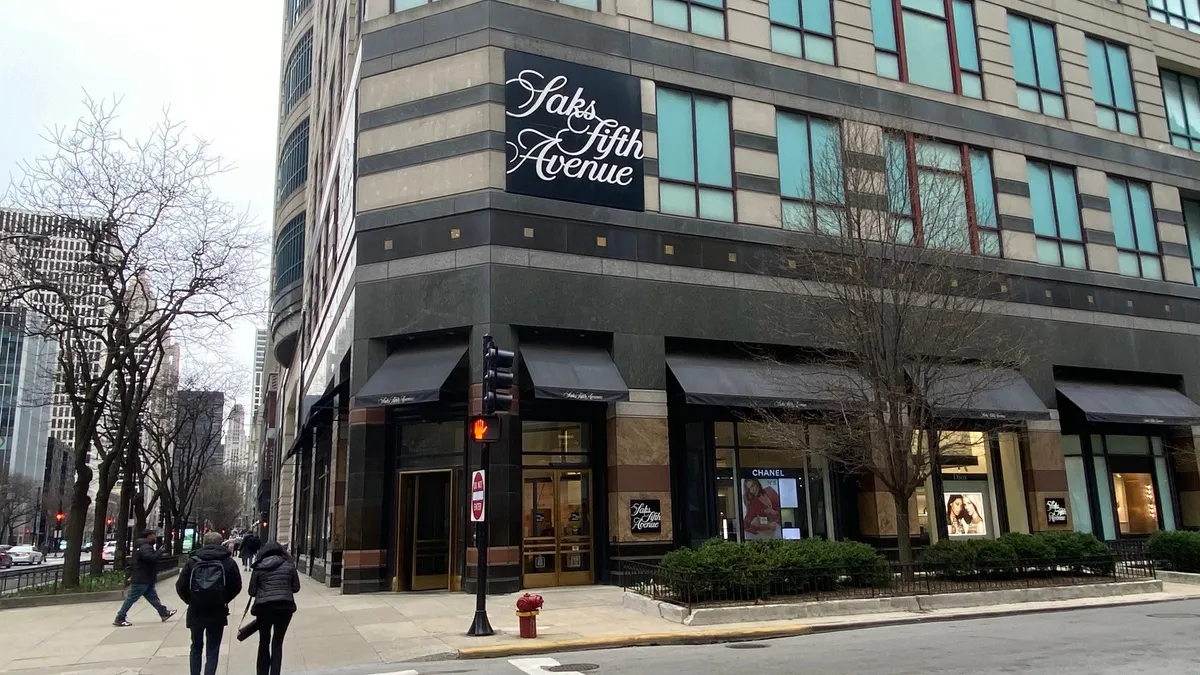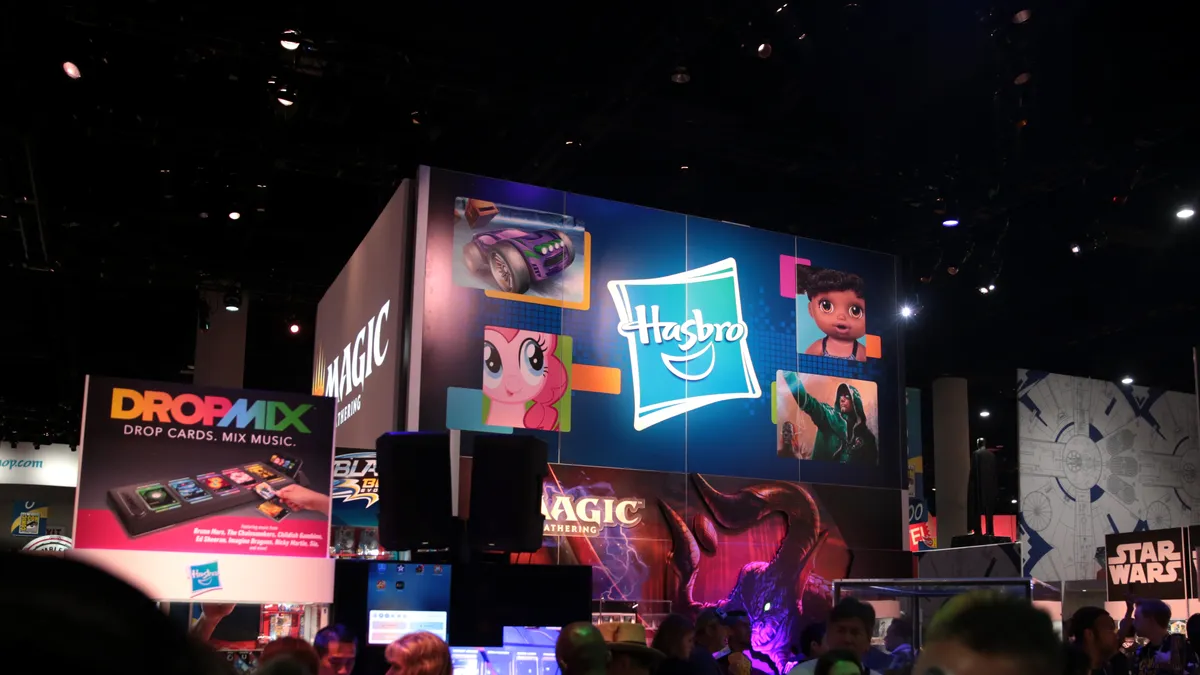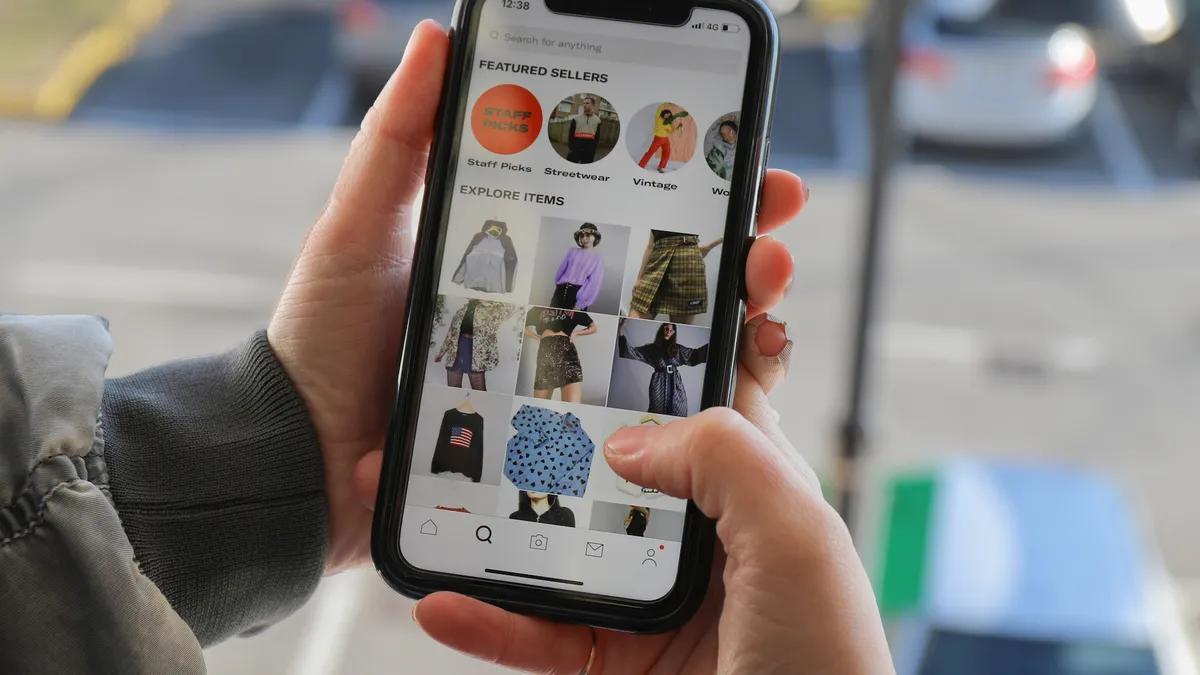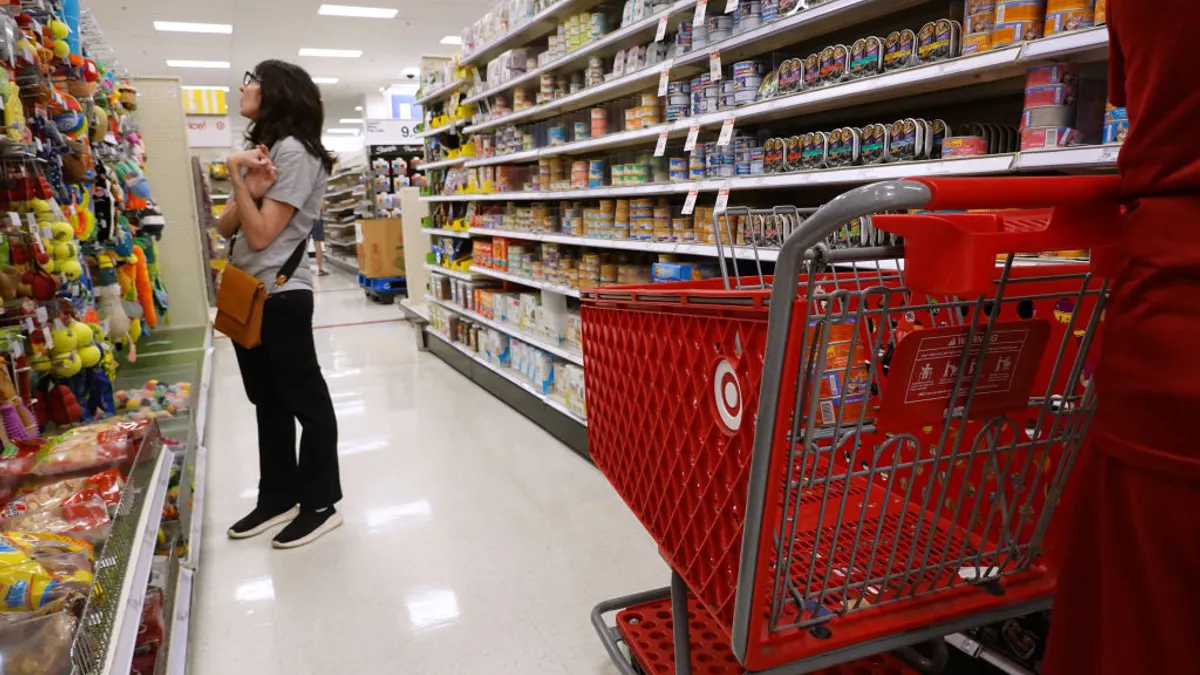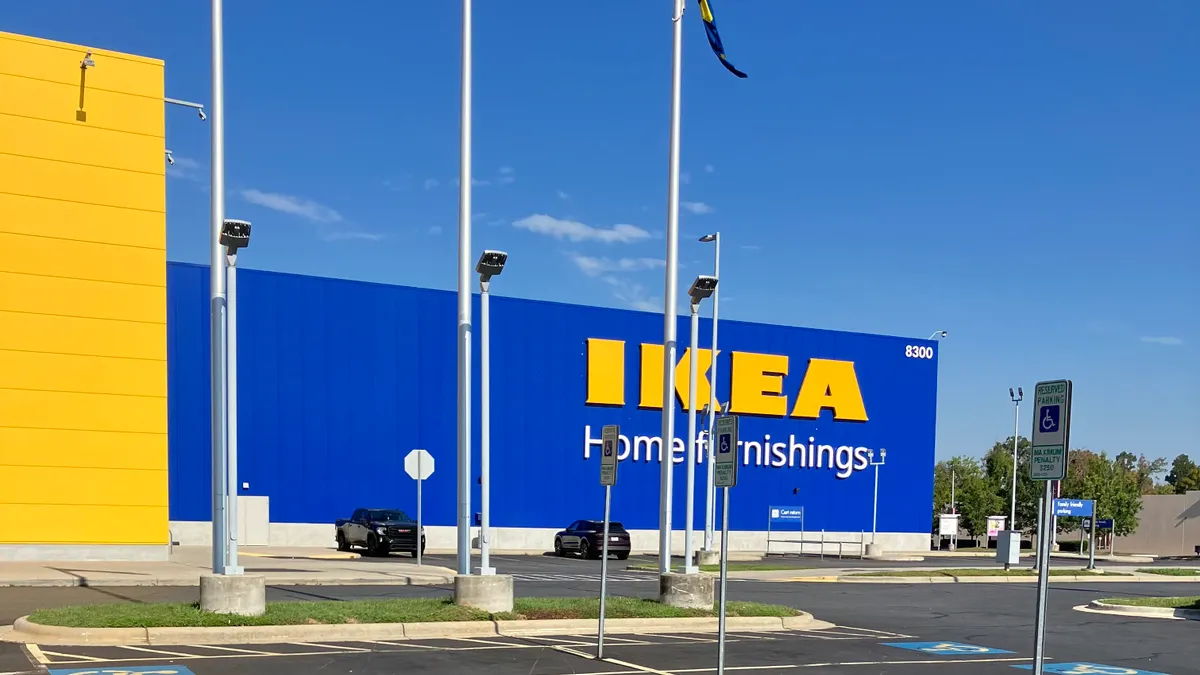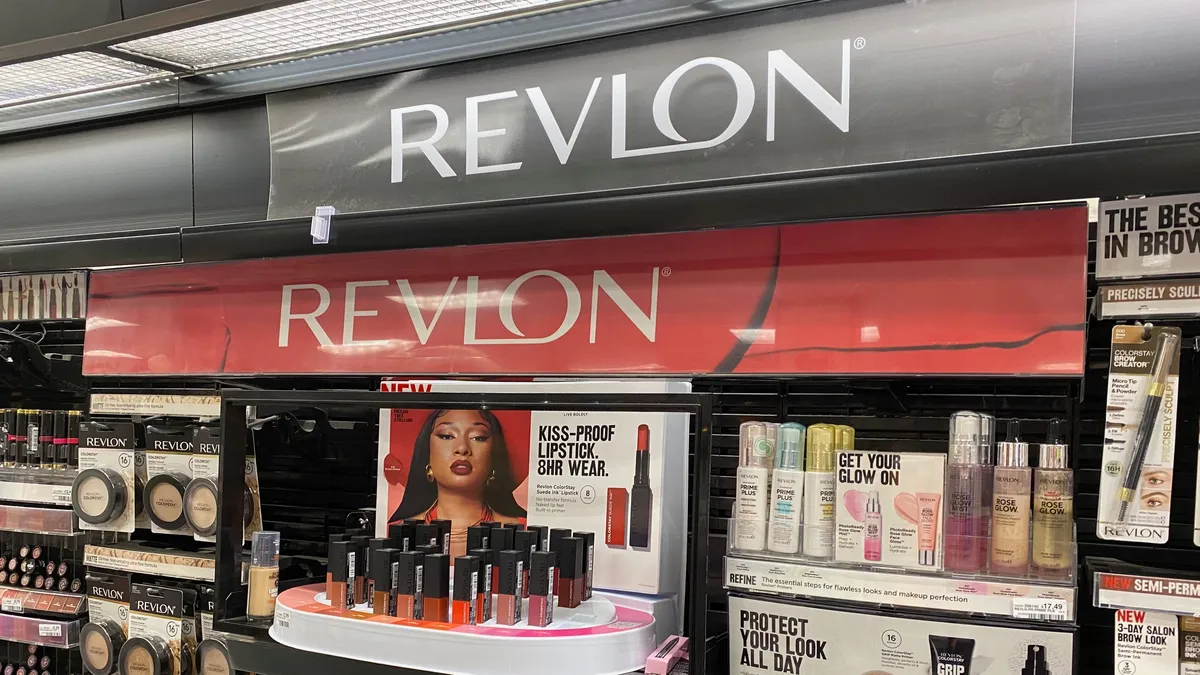It’s been another week with far more retail news than there is time in the day. Below, we break down some things you may have missed during the week and what we’re still thinking about.
From Lush Cosmetics’ fall-inspired pop-up cafe to Puma’s sale speculation, here’s our closeout for the week.
What you may have missed
Saks Fifth Avenue merchant leaves after two decades
Will Cooper, senior vice president of brand partnerships and buying, women’s handbags, shoes and accessories at Saks Fifth Avenue, has decided to leave, a spokesperson confirmed Thursday. In departing, he joins other longtime Saks executives, following the acquisition of Neiman Marcus for $2.7 billion.
Cooper was in merchandising at Saks Fifth Avenue for more than two decades, per his LinkedIn profile, and the spokesperson said he “played an instrumental role” over the years. “The Saks Global Brand Partnerships & Buying team remains focused on curating distinct and inspiring luxury fashion assortments for Neiman Marcus and Saks Fifth Avenue,” the spokesperson said. That team is led by Paolo Riva, who has been Saks Global’s chief brand partnerships and buying officer since January. Before that, Riva led brand partnerships and merchandising at Neiman Marcus for four years.
Los Angeles Apparel’s first retail store is in New York
Los Angeles Apparel – the American Apparel-like brand founded by American Apparel founder Dov Charney – has opened its first stand-alone brick-and-mortar retail store, in New York City’s SoHo neighborhood.
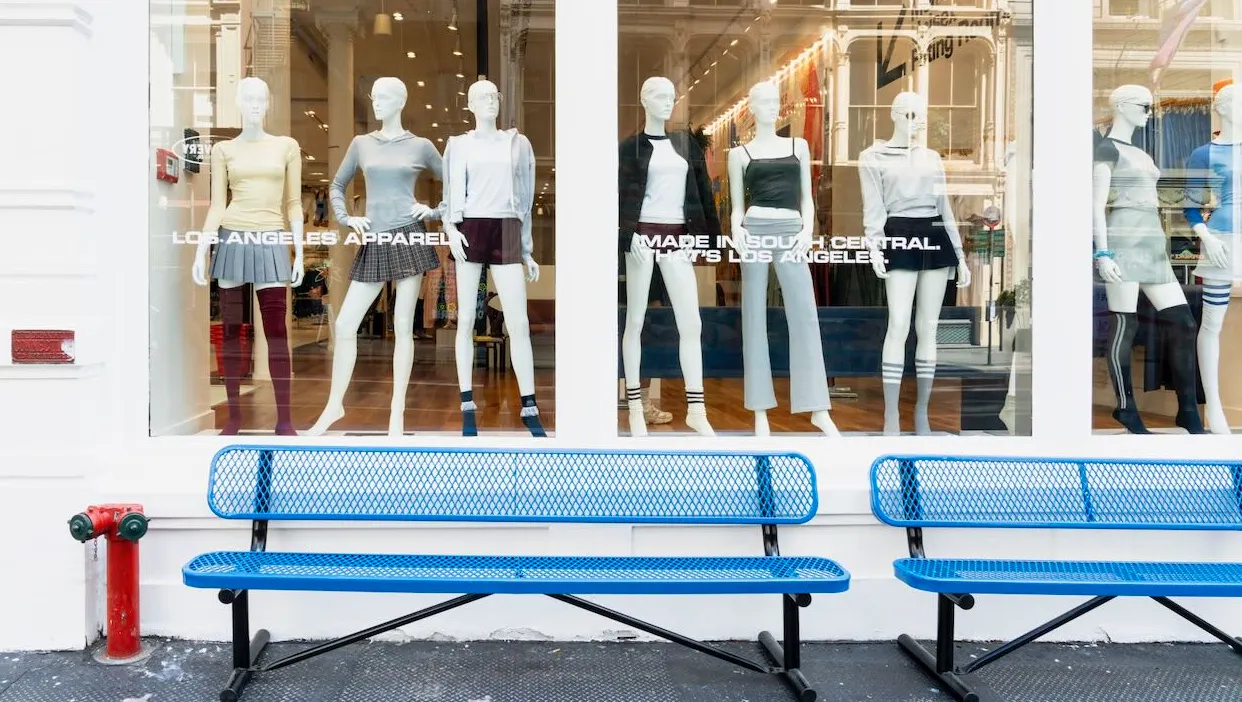
Charney founded Los Angeles Apparel in 2016, shortly after giving up on regaining control of American Apparel, the embattled brand he founded in 1989 that was a cult favorite in the ’90s. As with its predecessor (before Gildan acquired it out of bankruptcy and moved much of its manufacturing out of the country), Los Angeles Apparel clothing is made in California. The company runs a wholesale business, an e-commerce retail site and a Los Angeles factory store.
Retail Therapy
Lush Cosmetics kicks off fall with a cafe
Bath and body care brand Lush Cosmetics is promoting its collection of gourmand-scented products through a pop-up cafe in New York City, per a Thursday press release.
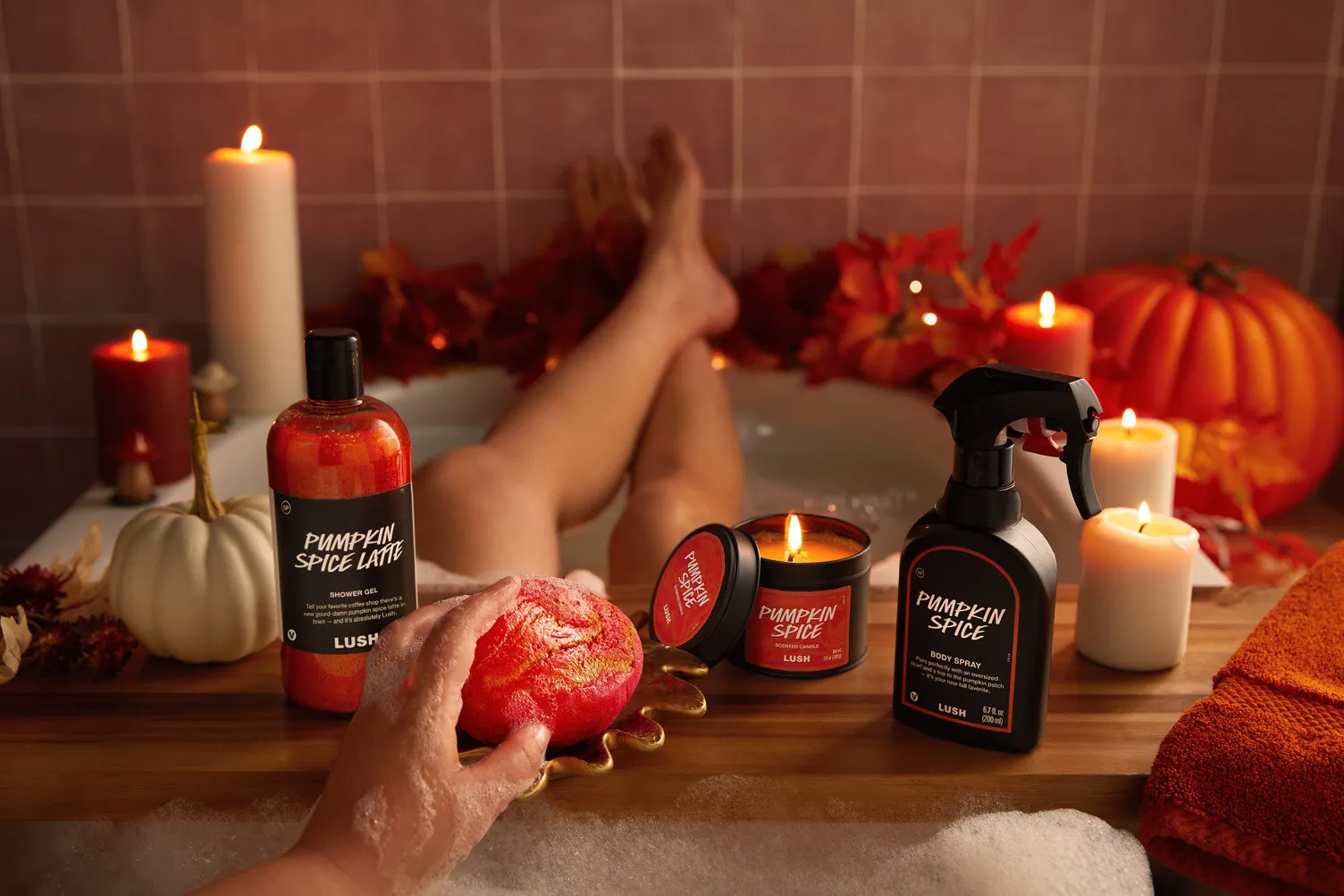
The company’s Cafe Gourmand will be open this Friday and Saturday and highlights seasonal products from Lush, such as its new pumpkin spice collection. The space will also have seasonal beverages and will offer the first 100 guests each day exclusively-made Lush Pumpkin Spice Cookie Dough Truffles.
Additionally, guests can take a scent quiz and receive a personalized scent layering consultation.
What we're still thinking about
79%
That’s how much RH’s net income increased during the second quarter, reaching $51.7 million. The home goods retailer also reported net revenues increased 8.4% year over year to $899.2 million
Chairman and CEO Gary Friedman in a letter to shareholders said the retailer experienced a 13.7% demand increase in the quarter “despite the polarizing impact of tariff uncertainty and the worst housing market in almost 50 years.” At the end of last month, the Trump administration announced it had begun a “tariff investigation” into furniture imports, with plans to initiate levies on those goods in the next 50 days.
Friedman said RH has been working to shift sourcing out of China and that it expects receipts to decrease from 16% in the first quarter to 2% in the fourth quarter, with “a meaningful portion of the tariff absorbed by our vendor partners,” Friedman added. The retailer is also looking to identify alternative countries to produce its hand-knotted rugs, which have historically come from India, a country hit by 50% tariffs.
“While there remains uncertainty until tariff investigations are complete, we have proven we are well positioned to compete favorably in any market condition.”
In light of the evolving tariff situation, RH revised its outlook for the year, now expecting revenue growth of 9% to 11%, which includes a 90-basis-point impact from tariffs, net of mitigations.
What we're watching
Could Puma soon have a buyer?
Speculation swirled this week around the possibility of Puma selling itself, first to its hometown rival Adidas and then to Authentic and CVC Capital. Both ideas originated in German publishers.
Bloomberg reporting in August had also raised the possibility of a sale, as the activewear brand’s financials have struggled in recent quarters. In Q2, Puma reported currency-adjusted sales fell 2% to roughly 2 billion euros (about $2.3 billion at press time) and were down 1% for the first half of the year. The company rolled out an efficiency program at the start of the year to help improve profitability and cut costs where possible.
Puma declined to comment on the possibility of a sale, as did its possible buyers. Adidas, which hosts its headquarters in the same German town as Puma, said in a statement that it does not comment on market speculation “as a matter of principle.” Authentic also declined to comment and CVC Capital did not immediately respond to a request for comment.


